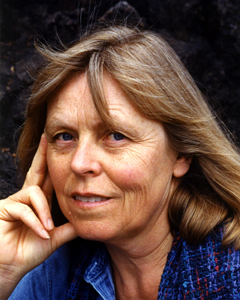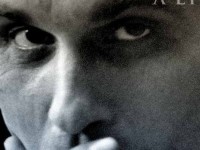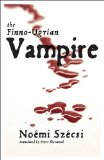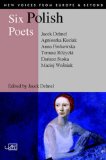Danuta E. Kosk-Kosicka is a poet, writer, translator, photographer, and she holds a Ph. D. in Biochemistry. She has authored two books of translations from the Polish (Lidia Kosk's
Niedosyt / Reshapings and
Słodka woda, słona woda/ Sweet Water, Salt Water) and two chapbooks of her original poems written in English. Her poems and prose pieces have been published in numerous literary journals and anthologies in the USA, Poland, and Ireland. Her translations of poems by Lucille Clifton, Josephine Jacobsen, and Linda Pastan have been published in Poland; her translations of Lidia Kosk's and Ernest Bryll’s works have appeared in over 50 publications in the U.S.A. She is an editor for
Loch Raven Review.
The following is an essay she wrote for
Little Patuxent Review about how she became a translator and poet. Following the essay, I've included three of her translations and two of her own poems.
On Being Invisible
I arrived in the United States on June 30, 1980, right after receiving my PhD in biochemistry from the Polish Academy of Sciences. A couple of months later, the Polish trade union Solidarity (
Solidarność) was born. As a result, the Polish government allowed my husband to join me in the States in December.
My first trip to a Safeway in San Francisco was a shock: overstuffed shelves in long aisles, so many kinds of everything. Countless varieties of cooking oil and salad dressing from which to choose or five-pound sugar bags at a time when, in Poland, stores were empty and food was rationed. Excess, waste, I thought. Then and there, I decided that I didn’t need sugar in my tea.
At that time, I was a rare species from behind the Iron Curtain: a scientist with a postdoctoral fellowship. People seemed really interested in life in that communist country, even if they were not sure where Poland was. They asked me questions, they talked to me. There was so much to learn about our different worlds. They were learning from me, I was learning about them and the United States.
When my fellowship finished two years later, Solidarity was in prison and martial law was imposed in Poland. Flights were cancelled, mail and phone conversations censored. My husband and I stayed here. I was awarded my own research grants. Our son was born. I had a busy and successful career as an associate professor at Johns Hopkins University and University of Maryland in Baltimore until I couldn’t work anymore due to fibromyalgia.
Why did I turn to poetry?
In 1980, Czesław Miłosz was awarded the Nobel Prize in Literature. He was right next door, a professor at Berkeley. My fellow researchers were amazed: Miłosz, a poet, from Poland. In 1996, Wisława Szymborska was awarded the same prize. My American friends started asking about the poet and her writings. Since her books were not available in English, I translated one of her poems, “The People on the Bridge,” for my friend Alice, whose grandparents had emigrated from Poland in the 19th Century. I enjoyed journeying from one language to another.
This adventure gave me the courage to translate poems written by Lidia Kosk, the author of ten books who is also my mother. Her poems reflect on Polish history, a passion that extended to a collaboration with her late husband, Henryk P. Kosk, on the two-volume Poland’s Generals: A Popular Biographical Lexicon.
As was typical for those of my parents’ generation, she grew up during World War II and survived first the Nazi occupation of Poland, then the Stalinist regime imposed on Poland by the Soviet Union. As a young girl, she was twice captured by Nazis in random round-ups of Polish citizens (she escaped both times), yet she still believes that human beings are inherently good, even though there is a part of us that is evil and can be activated by ideology. All these experiences have surfaced in her writing.
Once we had decided to publish a bilingual book, the pace of translation accelerated. I am now the translator of the two bilingual books of poems by Lidia Kosk,
niedosyt/reshapings and
Słodka woda, słona woda/ Sweet Water, Salt Water. I also edited the latter, which has been nominated for two translation awards.
I have translated other poets, including Ernest Bryll. He is the author of some 50 volumes of poetry, plays and prose and a co-translator of seven books on Irish literature. Some of his plays, such as
Painted on Glass, have attained record popularity in Central Europe, and some of his poems have been turned into lyrics for hit songs sung by some of the best Polish singers. My various translations have appeared in over 50 publications in literary journals and anthologies in the States.
I was also writing my own poems. Sometimes, when a poem couldn’t decide in which language it wanted to be written, I painted it.
I have given countless readings of my poems. Usually, I include my translations, accompanied by the originals that I read in Polish. I also provide information on Polish history, literature and the poet in question. While presenting Lidia Kosk’s war poems, I have noticed that people appreciate hearing that World War II started in Europe on September 1, 1939, with the invasion of Poland. Afterward, somebody usually comes to confess that he or she is of Polish descent but does not speak the language. Or, like Alice, just a few words learned from her grandmother, Babcia, who did not speak much English. At that time, it was believed that speaking another language at home hampered one’s education and chances of success in America.
In January 2011, I joined
Loch Raven Review, which has published my poems, translations and an essay on the translation process. As Poetry Translations Editor, I have focused on bilingual publications from upcoming or recently published books. My goal is to familiarize readers with lesser-known poets from all over the world. And with their translators, who work mostly for the love of poetry, poets and languages, all the while helping to spread the word about the less-noticed parts of the world.
______________________
Three Poems Translated by Danuta E. Kosk-Kosicka
A Note by Wisława Szymborska
Life — the only way
to grow leaves,
catch a breath on the sand,
rise on wings;
to be a dog,
or to stroke a dog’s warm fur;
to tell pain
from everything that is not pain;
to inhabit events,
get lost in the sights,
look for the smallest among mistakes.
An exceptional chance
to remember for a while,
what was discussed
when the lights were out;
and to trip over a stone
at least once,
get drenched in some rain,
lose keys in the grass;
and let the eyes follow a spark in the wind;
and perpetually not to know
something important.
-- from Loch Raven Review
Monte Cassino by Lidia Kosk
I stand among the crosses
in the rays of Italian sun
whitening the tombstones
and reflecting off the white.
Time has not stopped here.
Green trees and bushes climb
all around, up to the monastery
on the summit. Rebuilt,
back here. And they are
here. Here they lie.
The ones who have opened
the path for new life.
For them life was envisioned in one word,
Poland, the name of the country
taken from them.
I see more pilgrims arrive. From Poland.
They take the burial grounds
as their birthright.
For the dead: flowers and memories.
For the living: the discovery
that such cemeteries
are on life’s path.
And a still photograph
at the gravesite.
-- from Lite (this poem also appears in the bilingual book Niedosyt/Reshapings)
Curious About the World by Lidia Kosk
And if I am given the chance
again and once again
to look at the marvel of this world
through eyelashes, like petals
of an apple flower
again and once again
to taste the juicy fruit
imbued in human history
of climbing, reaching up
again and once again
I will reach up
curious about the world
I have not learned enough.
-- from the bilingual book Słodka woda, słona woda/ Sweet Water, Salt Water
______________________
Two Poems by Danuta E. Kosk-Kosicka
Face Half-Illuminated, Half in Shadow
*
Behind the small window a woolly sheet
underneath a dark-gray wing. Isolated,
we turn our clocks back—at first
cautiously, just one hour. Of the colors
of the world only gray, blue, and white
remain. We drink over our losses
and stuff the emptiness with meals.
When we bravely turn our clocks back again
the smaller clouds blush. We begin to believe
our powers over time. But at 2 pm above
the white blinding vastness the moon
turns up. Below, the mountains rise
and ice-fields crack.
**
Tea time: a scone
with clotted cream. I unpack
the spoon for the mounds of heavy
Alaskan cream out down there. Frozen
needles on my window
pane spell: b e w a r e.
***
One more hour left.
The passengers debate
whether it's 6 am
or 6 pm. In Warsaw concealed
by heaven my parents sleep
at twelve am. On I-95
at the other end at 6 pm
my husband and son are nearing
the place where I will touch the earth.
--first published in
Pirene's Fountain
Echo—Testing My Heart
I saw gutted buildings. Red River came
above its flood stage, up to twenty-six
fire-tinted feet. I watched my heart beat,
pump blood on the computer screen. My blood
was blue, my blood was red. The surges came
strikingly fast. A spilling lightning stormed
through the valves, opening, closing them.
The mitral valve, untamed galloping horse.
The aortic, swishing like a ghost train.
When those two sounds were lost, a gulping frog—
tricuspid valve I heard. Waves, spikes, walls, gates.
Dangers lurking in the sounds, in the waves.
They are over, both news and test. The echo
of valves and fires in red rivers stays.
--first published in
Rufous Salon
__________________________________
I also recommend her essay "A Note on Translating." You can read it by clicking
here.
And here's a radio interview Danuta E. Kosk-Kosicka and Lidia Kosk did recently. The interview includes some of Ms. Kosk's poems read in Polish and English. You can hear it by clicking
here.


















